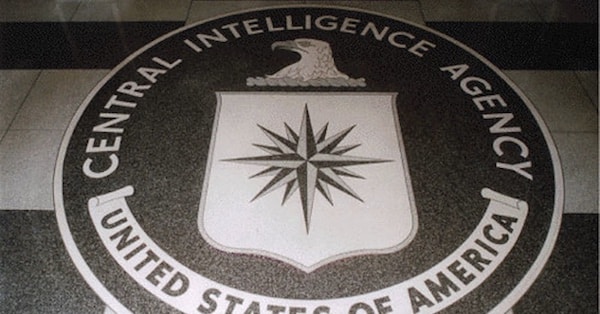In an interesting speech about the way U.S. imperial aggression provokes violence around the world, antiwar commentator Scott Horton made reference to an April 2022 article from Yahoo News that had previously escaped my attention.
The article is titled “In closer ties to Ukraine, U.S. officials long saw promise and peril,” and it features named and unnamed veterans of the U.S. intelligence cartel saying that long before the February 2022 invasion they were fully aware that the U.S. had “provoked” Russia in Ukraine and created a powderkeg situation that would likely lead to war.
“By last summer [meaning the summer of 2021], the baseline view of most U.S. intelligence community analysts was that Russia felt sufficiently provoked over Ukraine that some unknown trigger could set off an attack by Moscow,” a former CIA official told Yahoo News’ Zach Dorfman, who adds,
(The CIA and the Office of the Director of National Intelligence declined to comment.)
Dorfman writes that initial support provided to Ukraine during the Obama administration had been “calibrated to avoid aggravating Moscow,” but that “partially spurred by Congress, as well as the Trump administration, which was more willing to be aggressive on weapon transfers to Kyiv, overt U.S. military support for Ukraine grew over time — and with it the risk of a deadly Russian response, some CIA officials believed at the time.”
An interesting dynamic: US intel officials warned for years, across D and R admins, that closer military support/assistance to Ukraine was seen as a casus belli by Moscow. Politicians/officials disregarded the assessments, per former IC officials. https://t.co/wRXkQAWxnk
— Zach Dorfman (@zachsdorfman) May 10, 2022
Policymakers “would always say, ‘If we do X thing, if we give the Ukrainians X system, how are the Russians going to react?’ And our answer would always be, ‘You can’t look at any one thing in isolation,’” the unnamed former CIA official told Yahoo News.
And we might look and say, ‘Well, it’s just a few hundred MANPADs [man-portable air-defense systems] or a few hundred Humvees,’ but it’s missing the point that the Russians are taking all of this stuff in the aggregate, and they’re drawing this picture of this ever-increasing relationship between the U.S. and Ukraine.
“I understand the moral argument,” says former CIA official Jeffrey Edmonds regarding the weapons transfers into Ukraine,
but I also understand the argument that, well, why would you want to give these things if it’s just going to increase the chances that Russia does something?
So while we members of the public were blindly speculating about whether or not Russia would attack Ukraine, the U.S. intelligence cartel was fully aware that the U.S. was taking actions ensuring that that would happen. That’s the environment the U.S. security state knew it was operating under when it continued to taunt the idea of adding Ukraine and Georgia to NATO right up until the final moments before the invasion.
This war wasn’t just provoked, it was knowingly provoked. Off ramp after off ramp was sped past by the U.S. war machine at a hundred miles an hour on its beeline toward a horrific proxy war, because empire managers had calculated that such a war would serve U.S. interests. And now we routinely see U.S. officials like Mitch McConnell openly saying that this war serves U.S. interests.
They really couldn’t be more obvious about it if they tried.
I was proud to welcome President @ZelenskyyUa to the Capitol this morning and hear firsthand about the status of Ukraine’s counteroffensive.
American support for Ukraine is not charity. It’s in our own direct interests – not least because degrading Russia helps to deter China. pic.twitter.com/u0W32MIRrw
— Leader McConnell (@LeaderMcConnell) September 21, 2023
It’s been funny to watch the response of empire apologists to NATO Secretary General Jens Stoltenberg’s surprising refutation of a year and a half of empire propaganda by openly admitting that NATO expansion provoked the invasion of Ukraine and acknowledging that NATO powers rejected Moscow’s proposed compromises which could have averted the war. Basically the only argument they now have after this admission is to say that Russia should not have viewed NATO expansion as an existential threat.
Their only remaining trick is to argue with reality; to basically say that yes it’s reality that NATO expansion provoked this war because Moscow saw it as a threat, but reality shouldn’t have been what reality was. They argue that Russia should have felt completely different feelings about a military threat on its border than nations like the United States would feel, since as we’ve discussed previously the last time there was a credible military threat near the U.S. border the U.S. responded so aggressively that the world almost ended.
That’s really all they’ve got:
Yes it’s true that all the people who’ve died and lost their homes in this war did so because we were amassing a hostile military alliance near Russia’s border, but in our defense the Russians should’ve thought different thoughts in their heads than the ones that we ourselves would think about a hostile military threat on our border.
If all westerners deeply understood all the suffering and danger that has been unleashed upon our world by this war, and deeply understood the fact that their own governments played a role in starting it, the political status quo of the western world would be impossible to maintain. Which is why such unprecedented levels of propaganda and internet censorship have gone into preventing westerners from coming to such an understanding.

